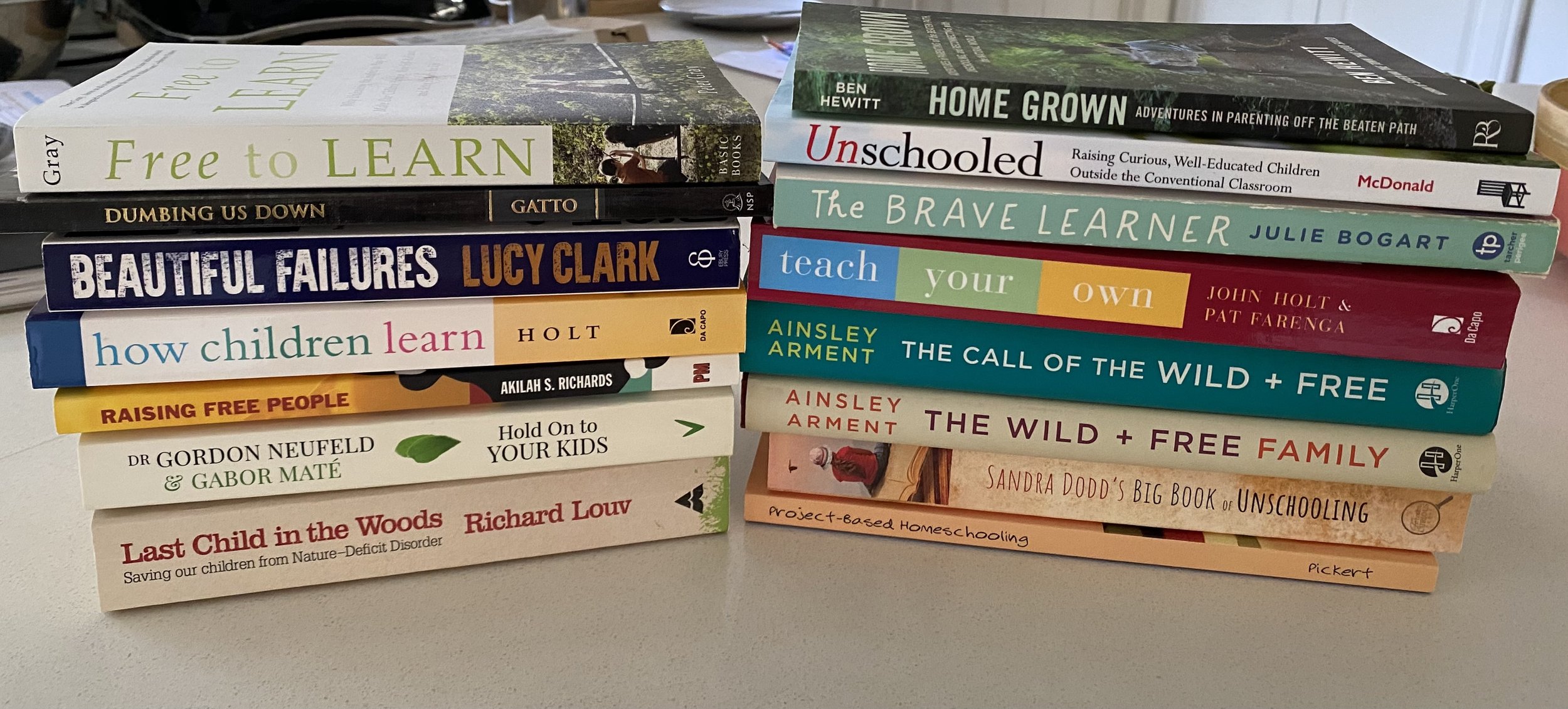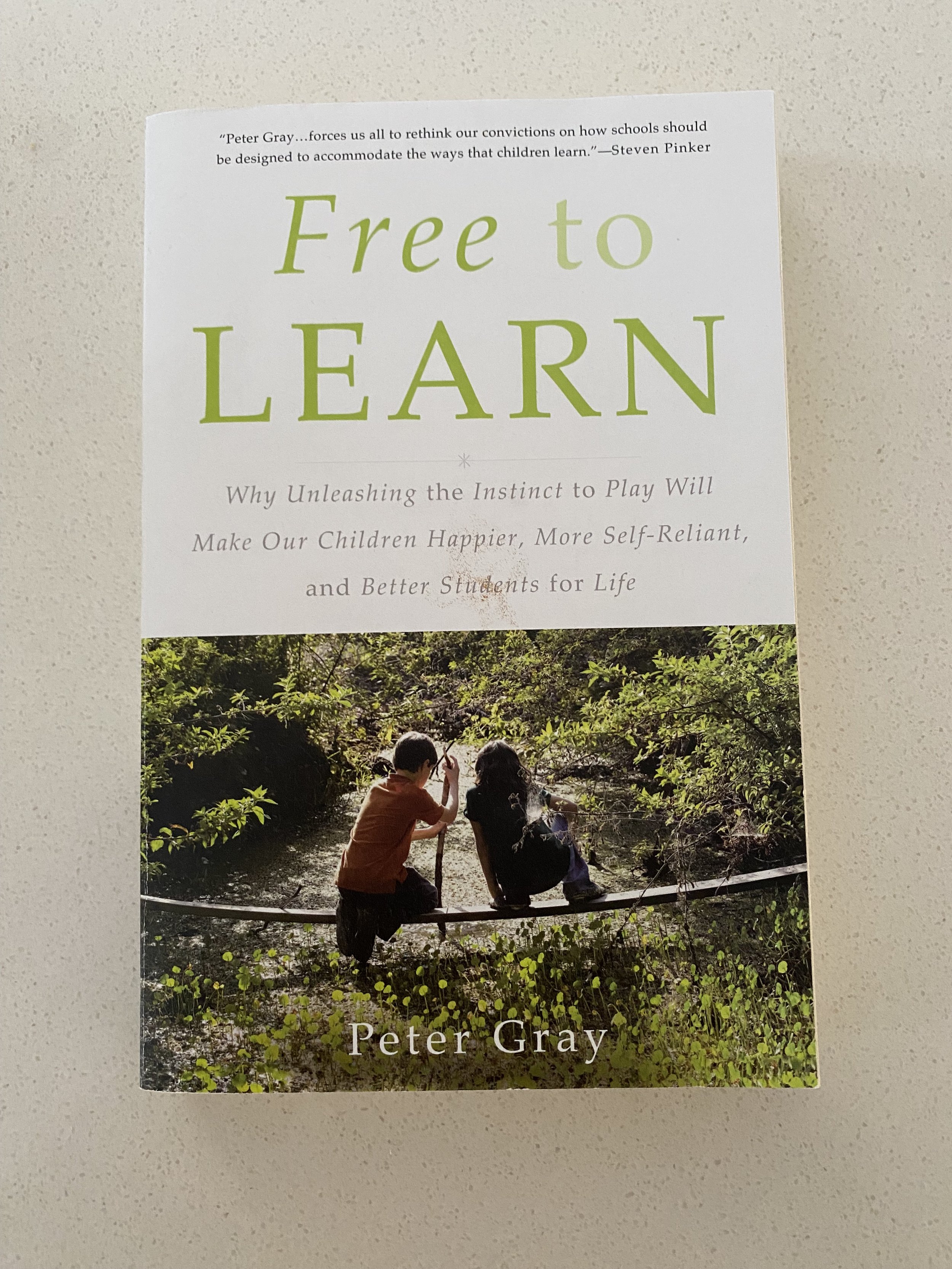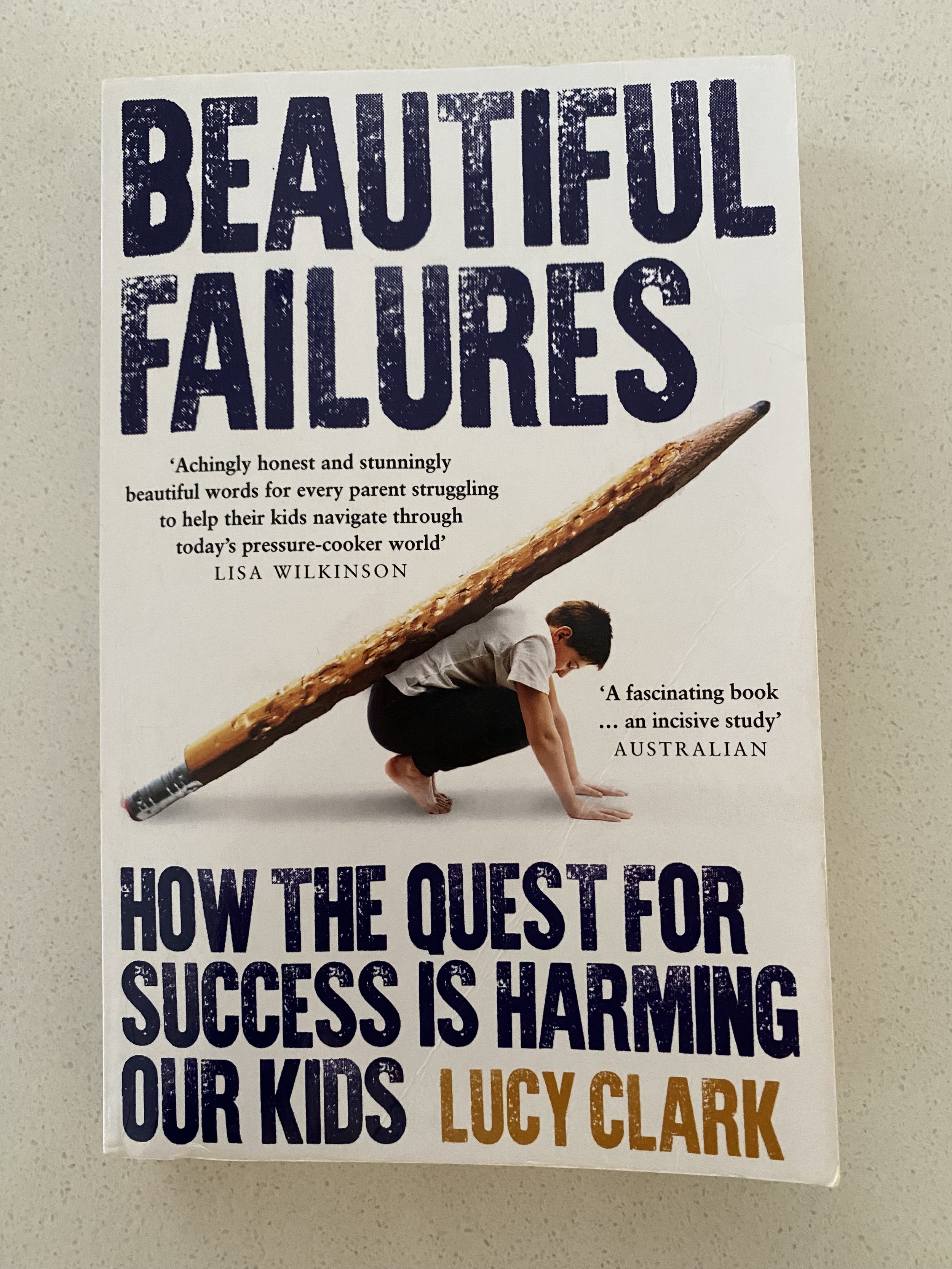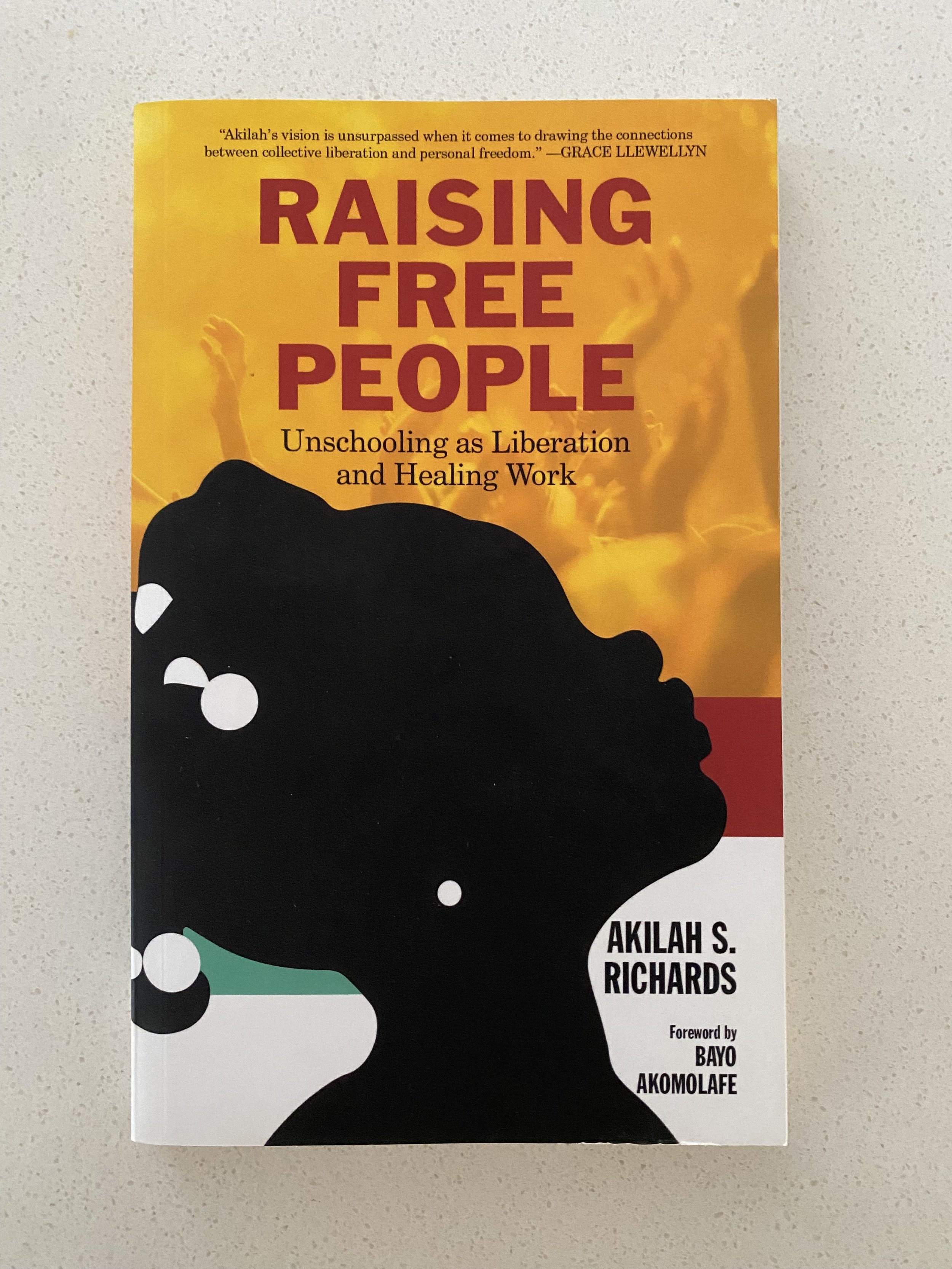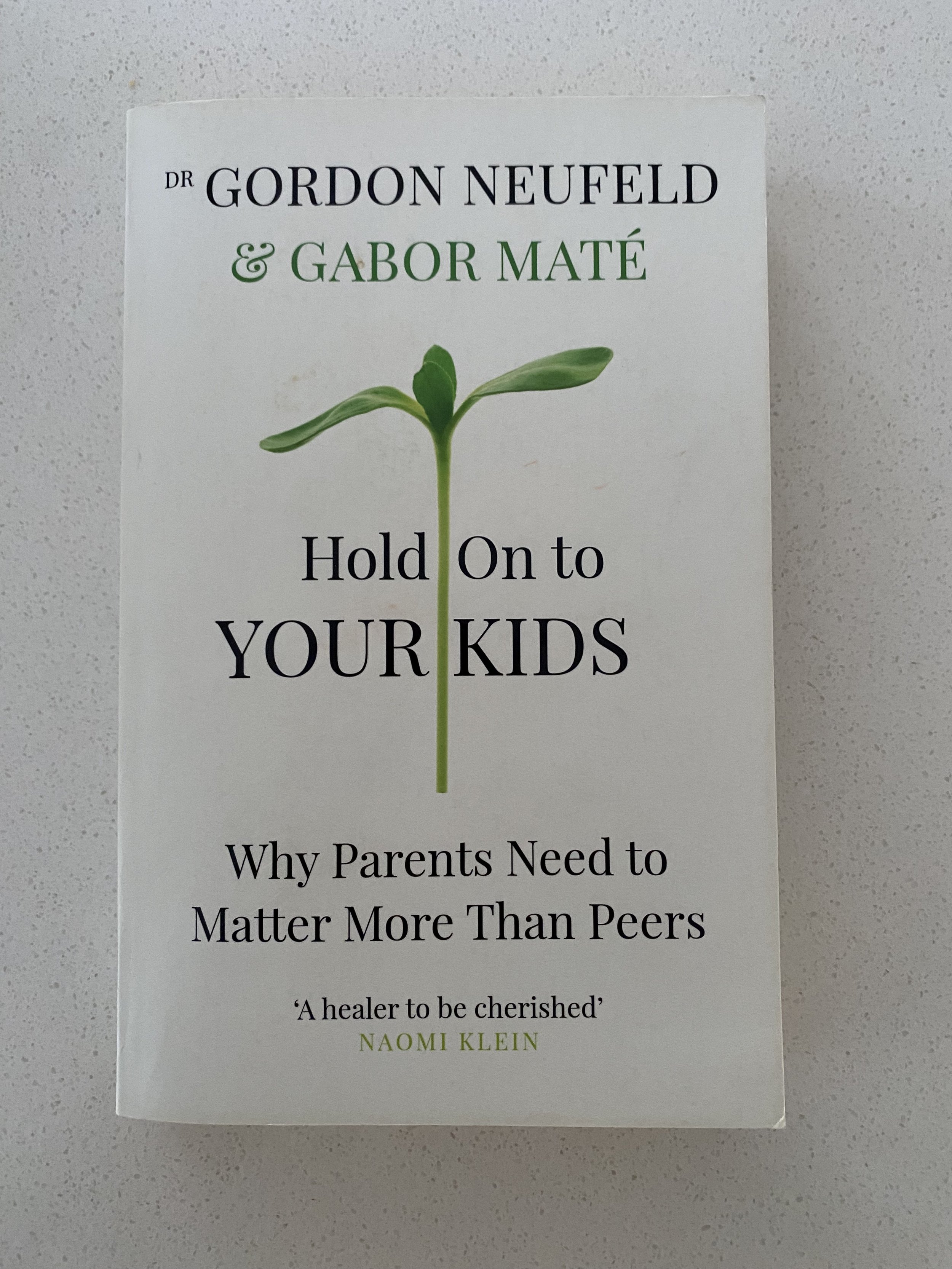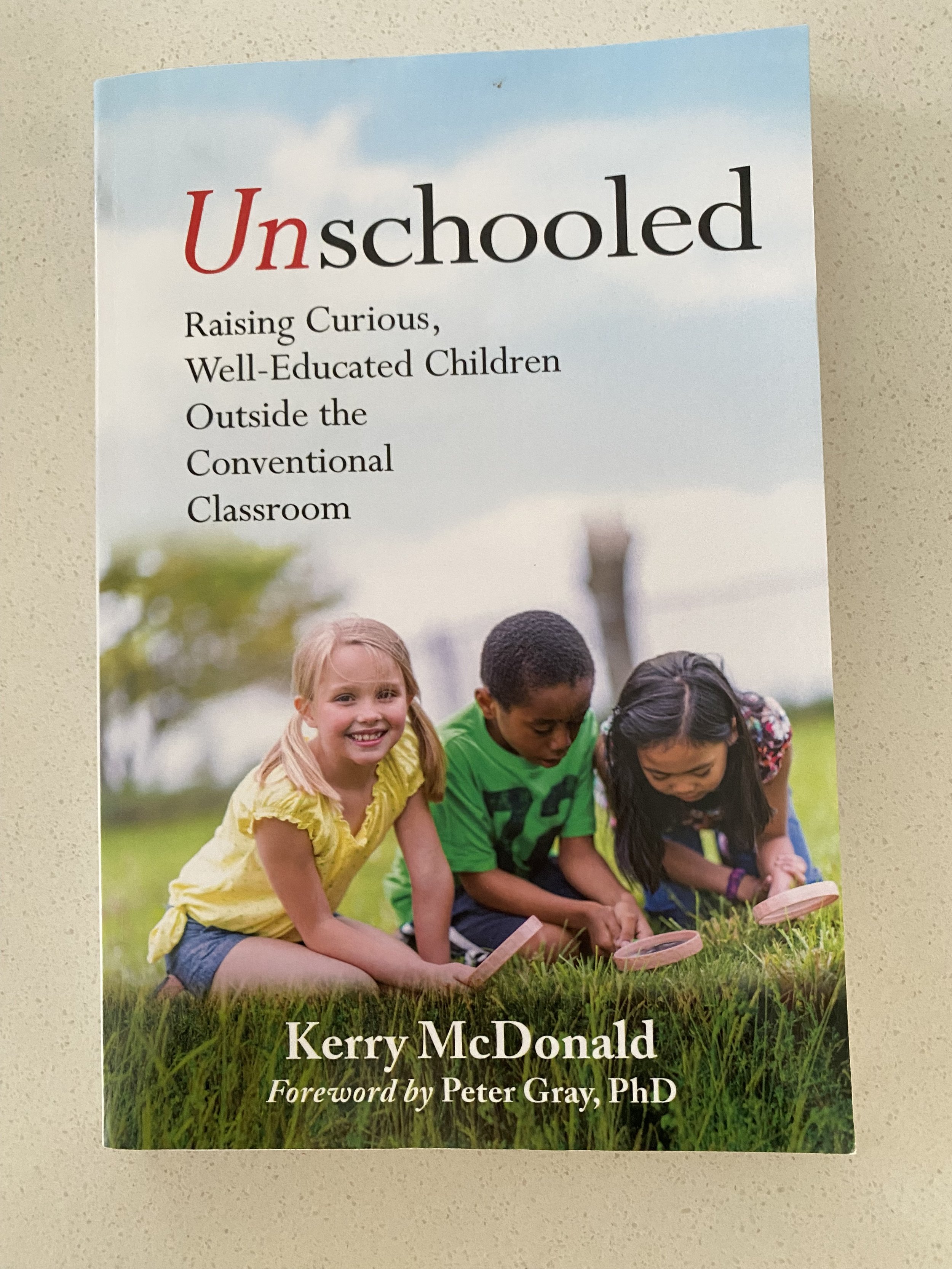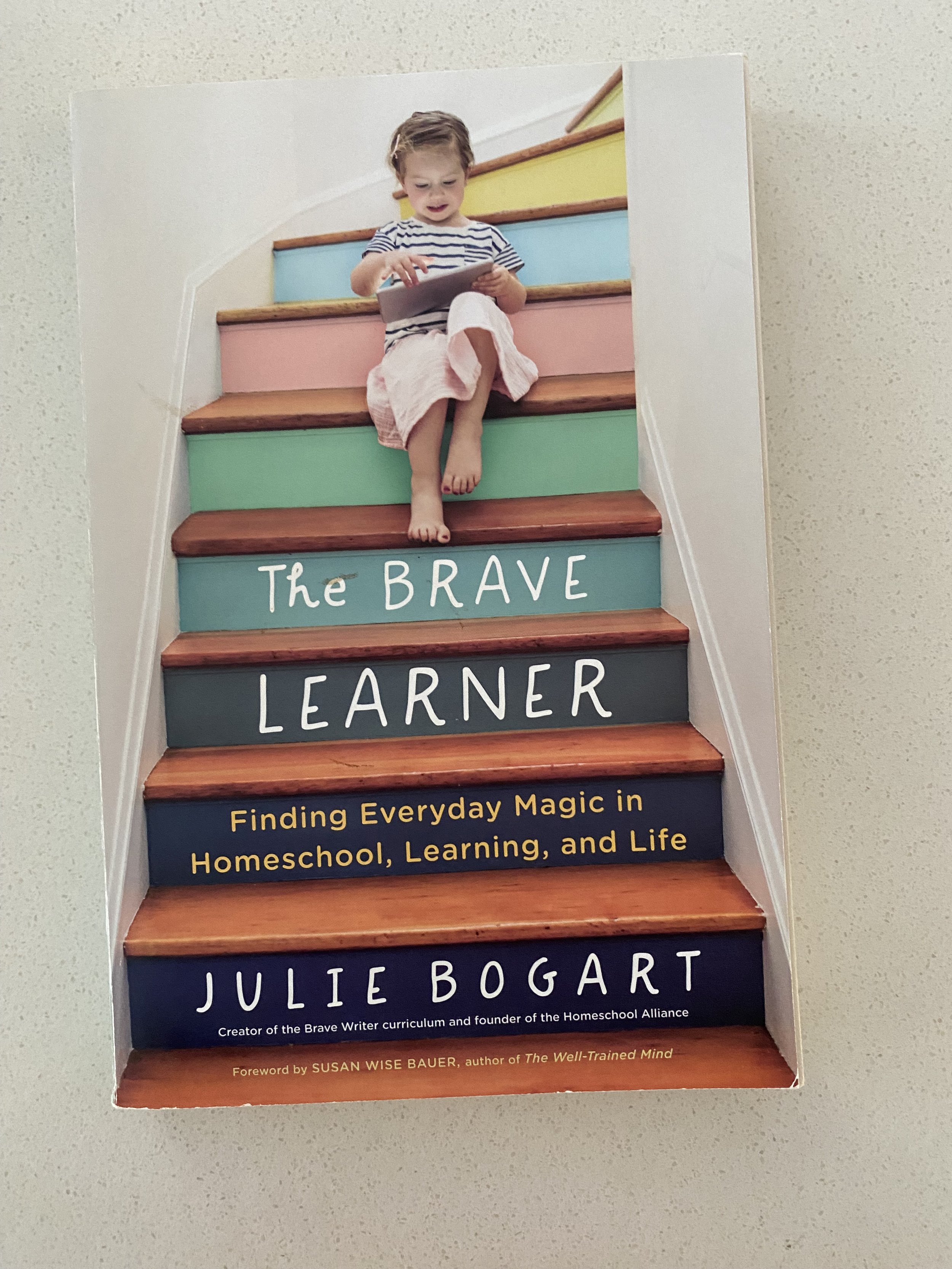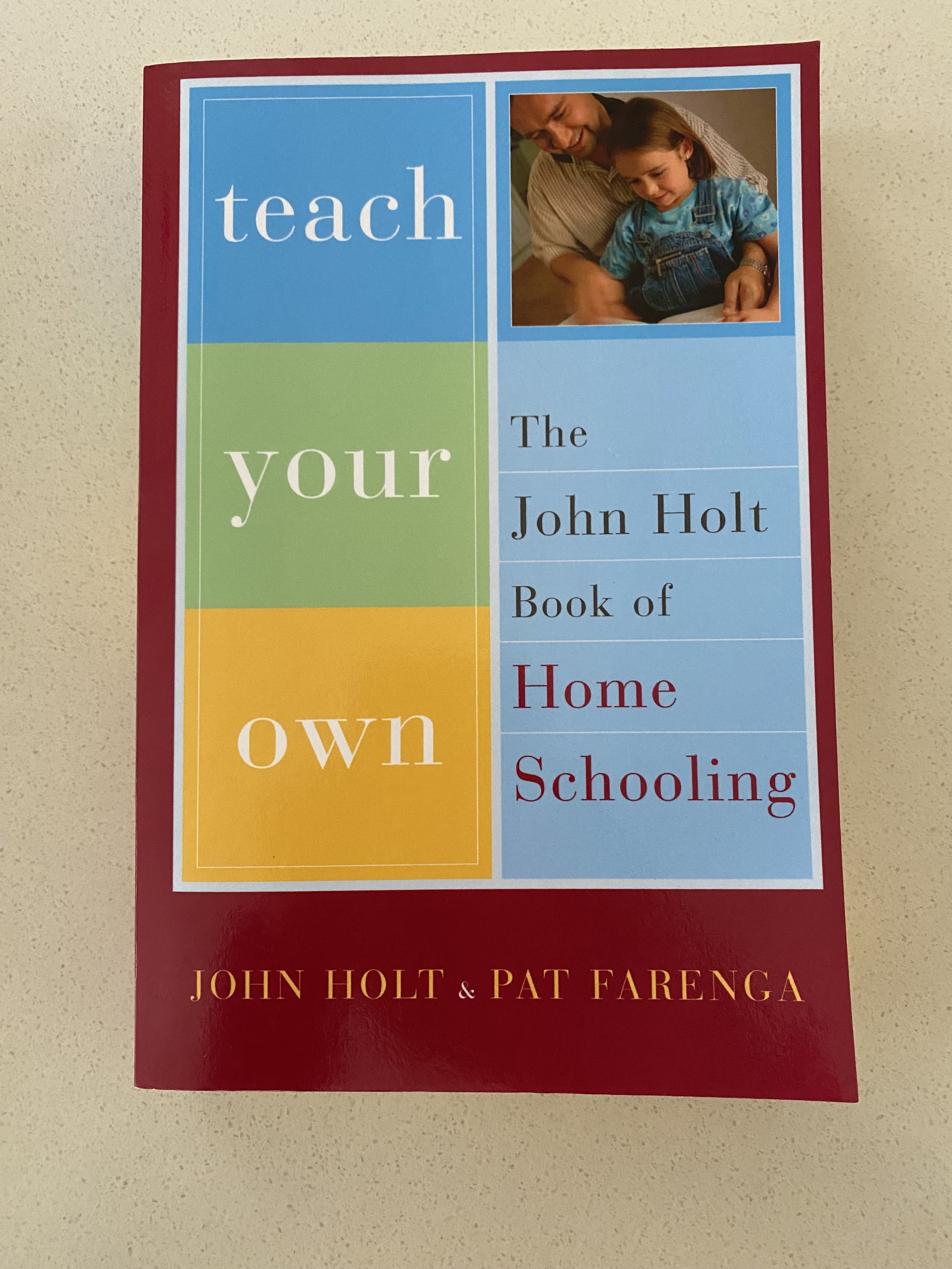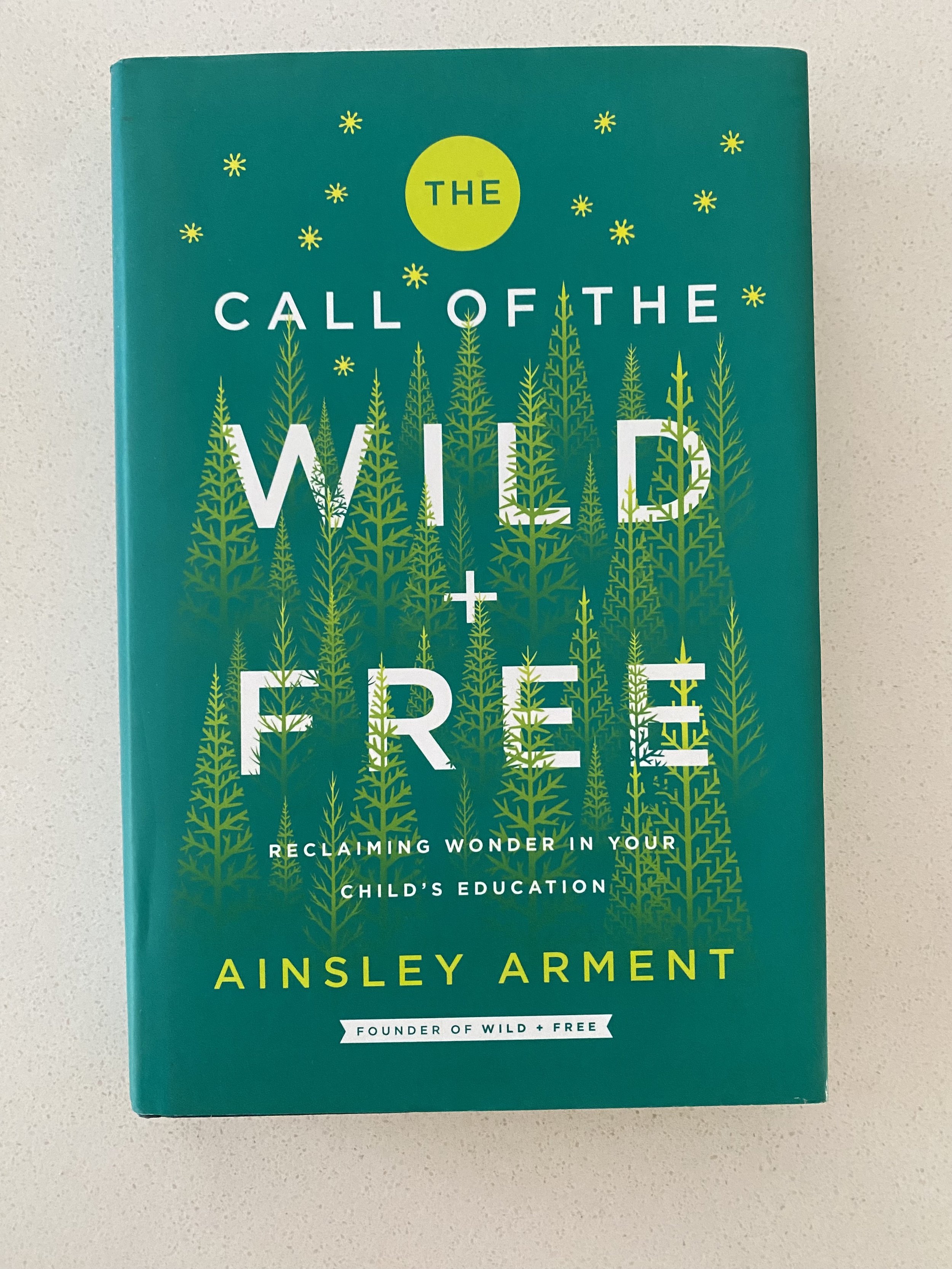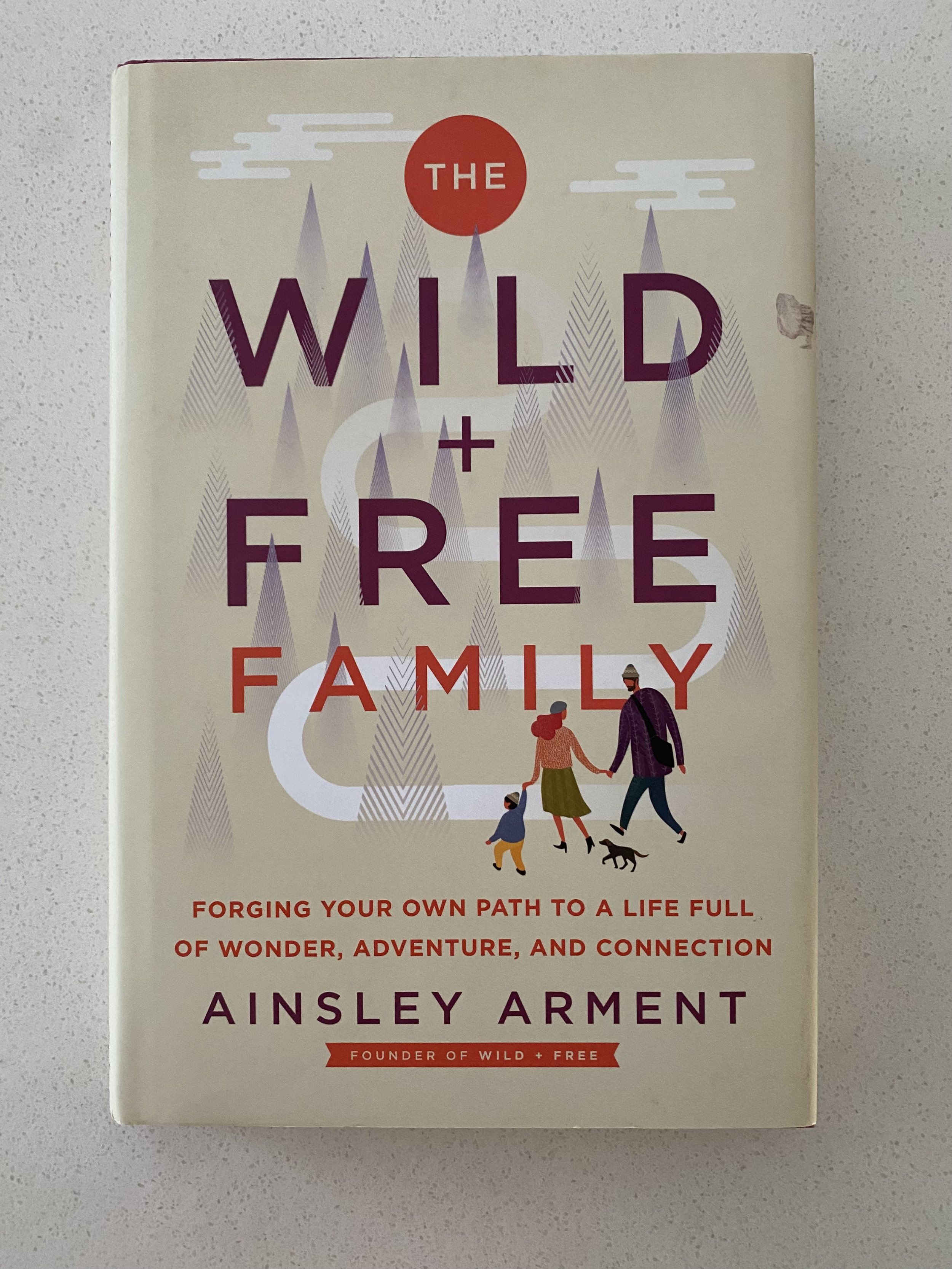Spirited Hearts® Most Recommended Books for Homeschooling
I often get asked “how do you do it?” “what if I have all of these fears?” and “what if I mess up my child’s education?”
These are all valid questions, that can leave parents feeling overwhelmed, terrified and stressed.
On my journey through life learning (the term I used to describe our type of homeschooling), I have found invaluable wisdom and knowledge in the books listed below.
I often get asked “how do you do it?” “what if I have all of these fears?” and “what if I mess up my child’s education?”
These are all valid questions, that can leave parents feeling overwhelmed, terrified and stressed.
On my journey through life learning (the term I used to describe our type of homeschooling), I have found invaluable wisdom and knowledge in the books listed below.
Whether you are already homeschooling, desiring to homeschool or the idea hasn’t even crossed your mind, all of these books can help you on your journey.
Free to Learn: Why Unleashing the Instinct to Play Will Make Our Children Happier, More Self-Reliant, and Better Students for Life by Peter Gray
This is the one of the most recommended books by guests on the Spirited Hearts podcast, and a book I also highly recommend. This book explores the history of the education system, the harm it causes to our children and ways we can improve our children’s lives through meaningful, self-directed learning. This book is the perfect starting point of you are considering homeschooling. You can listen to Dr Peter Gray speak on the Spirited Hearts podcast.
Dumbing Is Down: The Hidden Curriculum of Compulsory Schooling by John Taylor Gatto
After being a teacher for 30 years, John became an advocate for families and children, taking back education and learning. He shares his experiences on the detrimental effects of formal schooling and why children need less school, not more. If you are hesitant about homeschooling, this book offers insight into how the education system works. When we understand the broken system, we can use that to inform our decisions for the future of our children.
Beautiful Failures: How the Quest for Success is Harming Our Kids by Lucy Clark
This is such a brilliant book outlining how schooling causes anxiety and depression in children today based on the unnecessary academic pressure they experience from the education system. This book challenges all the ‘norms’ of school and holds the education system to accountability for its role in the declining wellbeing of children’s mental and emotional health. If your child is at school and you don’t have the capacity to homeschool, this book can bring more awareness so you can advocate for your child at school.
How Children Learn by John Holt
This book was first published in 1967 and my gosh was John Holt WAY ahead of his time. This was a man who was not only aware, but challenged the way the education system claims children learn. When you understand learning and how it happens, you realise that children don’t need school at all.
Raising Free People: Unschooling as Liberation and Healing Work by Alisha S. Richards
The author argues why we need to build and work within systems truly designed for humans to learn, grow, socialise and thrive. Unschooling has been proven to heal generations of school trauma. This book also explores examples of transitioning from school or homeschooling to unschooling.
Hold on to Your Kids: Why Parents Need to Matter More Than Peers by Dr Gordon Neufeld and Dr Gabor Mate
This is also a frequently recommended book by guests on the podcast. The authors argue that for many children today, peers have replaced parents. This means that rather than taking values from their family, their identities are being shaped by their classmates, which is not natural and can be dangerous - think peer pressure and drugs as a worst case scenario. This book also offers practical advice on how to reconnect with our children and form lifelong secure attachments. A very insightful book whether you homeschool, and especially if your child attends school.
Last Child in the Woods: Saving Our Children from Nature-Deficit Disorder by Richard Louv
Especially when children attend school and extracurricular activities, they are more at risk of health issues due to no nature connection. We are a part of nature, we need a connection to the natural world to thrive and when we spend most of our lives in classrooms, offices, workshops and inside houses, we decrease our overall well-being. This is a must read for every single family!
Home Grown: Adventures in Parenting off the Beaten Path, Unschooling, and Reconnecting with the Natural World by Ben Hewitt
This is a beautiful personal account of one family’s unschooling journey in the woods. It challenges most of our cultures faulty thinking about education, and demonstrates the strengths that comes from learning through living life. My husband really enjoyed this book too!
Unschooled: Raising Curious, Well-Educated Children Outside the Conventional Classroom by Kerry McDonald
This is a well-researched and helpful companion to have on your unschooling journey. It addresses what unschooling is, why our childhood isn’t what it used to be, and how we can beat support our children whether they are learning at home or go to school.
The Brave Learner: Finding Everyday Magic in Homeschool, Learning and Life by Julie Bogart
This book is all about making learning exciting and enchanting for your child/ren. It provides practical guidance on supporting your child in all areas of learning and invites you to model learning with curiosity, courage and joy.
Teach Your Own: The John Holt Book of Home Schooling by John Holt and Pat Farenga
This book is an in-depth exploration of what homeschooling can look like, and why learning at home doesn’t need to mirror school. Some of the topics explored include learning without teaching, learning difficulties, how to get started, learning in the world, plus so much more.
The Call of the Wild + Free: Reclaiming Wonder in Your Child’s Education by Ainsley Arment
This is a delightful read and is very helpful on your homeschooling journey. This book addresses many of the myths of homeschooling, finding your own unique rhythm and saving childhood for our children by providing them with meaningful, adventurous and magical learning experiences.
The Wild + Free Family: Forging Your Own Path to a Life Full of Wonder, Adventure and Connection by Ainsley Arment
I loved this book and how it addresses another beautiful aspect of homeschooling, and that’s family. When you homeschool, it isn’t just about your child’s learning journey. It’s about creating the family culture you are all needing, connecting with your children, creating a safe haven and adventuring through life and learning together.
Sandra Dodd’s Big Book of Unschooling
This is an insightful summary of Sandra’s website and her decades experience in unschooling her own children. It is layer out in a very accessible manner, with so much information ranging from toddlers, all the way to teenagers and beyond.
Project-Based Homeschooling: Mentoring Self-Directed Learners by Lori Pickett
This book is a collection of strategies for helping children direct and manage their own learning. A big part of the learning process is trusting our children, and giving them freedom, power and autonomy on what they learn, how they learn it and when they wish to learn it. It’s about identifying your child’s interests, creating environments that encourage independent research and how to build a family culture that promotes meaningful learning.
This is by no means an extensive list of all the books that you can possibly read. They are books myself and others I have spoken to have found useful, informative and inspiring on their learning journeys as a family.
Have you read any of these books? What were some of your key takeaways?
Have you read a book not on this list, that you would recommend to others? Leave the name in the comments below.
Children Learn At Their Own Rate & In Their Own Time
Children learn at their own rate, and in their own time. Seems pretty self-explanatory, doesn’t it? Yet, the current education system seems to have misplaced the memo. I’m not just talking about the formal school years either, this issue starts from daycare and preschool. With the pressure for “school-readiness.” As if daycare/preschool is more of a bootcamp, instead of a place where children can spend the most important years of their development in a place of presence, support and nurturing, filled with play.
Children learn at their own rate, and in their own time. Seems pretty self-explanatory, doesn’t it? Yet, the current education system seems to have misplaced the memo. I’m not just talking about the formal school years either, this issue starts from daycare and preschool. With the pressure for “school-readiness.” As if daycare/preschool is more of a bootcamp, instead of a place where children can spend the most important years of their development in a place of presence, support and nurturing, filled with play.
Let me tell you a personal story involving my own children. My eldest son didn’t start talking until he was 2 years old. He also wasn’t formally taught to read, until he spent a brief stint of 2 terms at a state school. However, when he was ready, and when he was learning things in his own way and time, his learning skyrocketed. He went from not being able to read, to reading 100+ page chapter books targeted at children at least 2 years older than him. He went from only being able to write capital letters, to writing stories with correct grammar and punctuation. He went from simple maths, to understanding algebra and multiplication within a very short space of time. Is he a genius? Honestly, I have no idea what the benchmark for being classed as a genius is. What I do know, and what I contribute his understanding to, is this:
Learning about WHAT he is interested in, WHEN he is interested in and HOW he wants to express that learning.
For example, at the beginning of the year we did a 10-week investigation on Australian Birds. He went bird watching and kept a journal, collected feathers and other nature items to create artworks, read many fiction and non-fiction books on Australian birds, wrote stories using birds as the characters and did maths equations based on the information he collected in his birdwatching journal. I want to add, that my son chose this unit of study. He wanted to know all about Australian birds, and use real life situations to do that learning. Instead of just reading about birds in books, he went out into the world. He found them, he identified them, he observed them, and as a result his knowledge of them grew in a real, fundamental and concrete way.
Now to contrast this story with my younger son. He wasn’t delayed in his talking. In fact, he could very clearly and accurately say words like “asparagus” and “vacuum cleaner” at 10 months old. At his current age of 4, he taught himself all addition equations up to 10, he can count with no errors to 50, he can write his own name and he can recognise most of the upper and lowercase letters of the alphabet. Did I intentionally teach him any of this? No, no I did not. Am I shocked that he can do all of this at 4 years old? Yes, my answer is yes. To spell his name, he observed it on name labels, then he used chalk, lines in the sand, pencils, lots of trial and error, until eventually he has been able to write his own name…neatly and accurately for the past several months.
My point in telling you these 2 stories, is that children really do learn at their own rate and in their own time. For many things, children don’t need formal learning. They need supportive, understanding and considerate adults to help them along the way when they stumble, struggle and occasionally fall. But they don’t need us to sit next to them, telling them exactly how to do things, or give them worksheets or alphabets to trace. Each child has their own strengths and weaknesses. Some children pick up maths really quickly but struggle with physical activities like coordination. Other children learn to read and write really quickly, but find it challenging to hold a musical tune. Does this mean they are failures? Nope, nope and nope. This means they are human. They will naturally gravitate towards those areas of learning that resonate with them and that they tend to excel at.
When my eldest son spent those few months at school, he struggled. He became anxious, perfectionistic and stressed because of the pressure he was placed under by the school to meet certain standards at certain times. Now I will tell you truthfully, I LOVE paperwork, like I get enjoyment in filling out forms and answering questionnaires (yes, I may be weird but I did love my admin jobs in my previous employment lives). However, the worksheets my son was given, well it was boring as batshit quite frankly. Not only was he doing copious amounts of worksheets at school (I knew because I would go in every week to help his class with literacy groups), but he was also given them as homework…at age 5! I wasn’t given homework until high school. These are actually some of the reasons I pulled my son out of school, and we started our natural learning (some call unschooling) journey. He has gone back to loving learning about new things. I know how he learns, so we do a lot of hands-on, real life experience learning. I also know he is learning a lot, because every time one of my Family Day Care families walks through the gate, he is immediately telling them all these wonderful and insightful facts and information. He is demonstrating his ability to retain and comprehend what he is learning, not just memorising and regurgitating it at will for a test.
My final thoughts for this, is that teachers are not to blame for this. I know that the teachers at my son’s school were amazing. They often told me they didn’t like how the Australian Curriculum seemed to be moving to younger and younger years of age, so that Year One level is now actually taught in preschool. They are struggling too. The problem stems from the very top of the education system, where the curriculum and testing comes from. From the people who have no idea about child development, no idea about the increase in mental health problems among children and who perhaps had traumatic childhoods they have not healed from or they have forgotten the magic of childhood play. Either way, the entire system needs an overhaul by professionals who are lovingly invested in the best interests of the children, and who have the neuroscience and knowledge to understand how the developing brain works.
What are your thoughts on the education system? Are you children thriving or struggling? If there are things you could change about your child’s schooling, what would it be?
Leave you comment below.
Thanks for reading, and until next time…
Much gratitude,
Steph
Recommended Reading:
Cooperative and Connected - Aletha Solter
Dumbing Us Down - John Taylor Gatto
How Children Learn - John Holt
Free to Learn - Peter Gray
